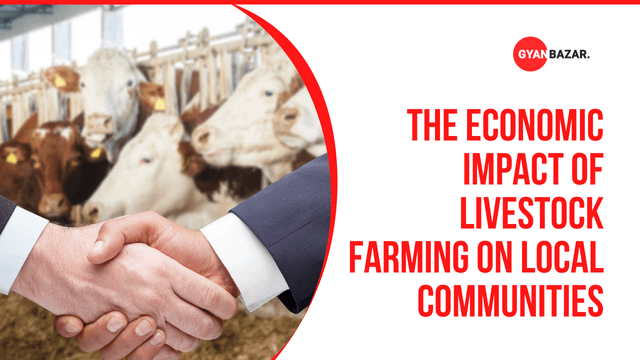Livestock farming is an important sector of agriculture that provides food, clothing, and other products to communities around the world. However, it also has a significant economic impact on the local communities where it operates. In this article, we will discuss the economic benefits of livestock farming on local communities.
Job Creation
Livestock farming is a labor-intensive industry, which means that it requires a significant amount of manpower. This results in the creation of many jobs, which are important for local communities. Livestock farming creates jobs for farmers, herdsmen, veterinary doctors, butchers, and other professionals. The employment opportunities provided by livestock farming help to reduce unemployment rates and improve the standard of living for local communities.
Revenue Generation
Livestock farming generates significant revenue for local communities. The sale of livestock products such as meat, milk, and eggs provides a source of income for farmers and other stakeholders. Additionally, livestock farmers often sell their products to local markets and restaurants, which creates more economic opportunities for the community.
Food Security
Livestock farming contributes to food security by providing a steady supply of animal products such as meat, milk, and eggs. These products are an important part of the local diet, and they provide essential nutrients that are necessary for a healthy lifestyle. Livestock farming also helps to reduce food insecurity in local communities by ensuring that there is a consistent supply of affordable animal products.
Infrastructure Development
Livestock farming can stimulate infrastructure development in local communities. To transport livestock products, farmers need access to good roads, bridges, and other forms of transportation. This, in turn, can lead to the construction of new roads and other infrastructure, which benefits the entire community. The development of infrastructure can also attract new businesses to the area, which can create more economic opportunities for local residents.
Environmental Conservation
Livestock farming can contribute to environmental conservation by promoting sustainable land use practices. Livestock farmers are often required to adopt sustainable farming practices, such as rotational grazing, which help to protect the environment. Additionally, livestock farming can promote soil health and reduce the use of harmful chemicals and pesticides, which can have a positive impact on the local environment.
Conclusion
Livestock farming has a significant economic impact on local communities. It creates jobs, generates revenue, promotes food security, and contributes to infrastructure development and environmental conservation. As such, it is an important industry that supports the economic growth and development of local communities around the world.

